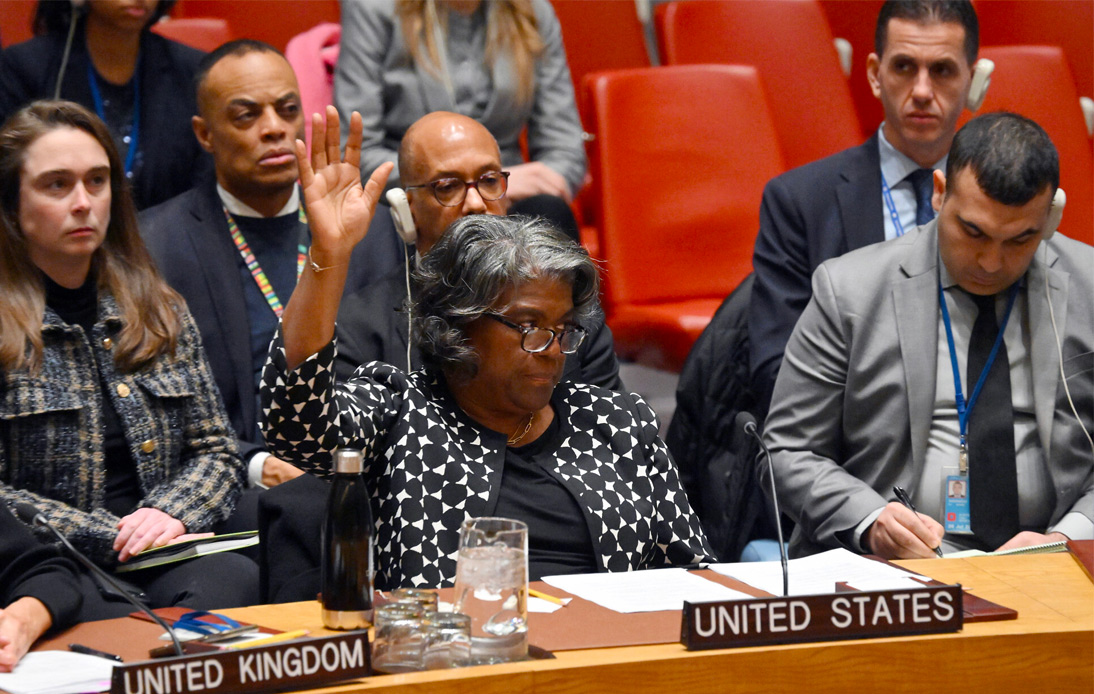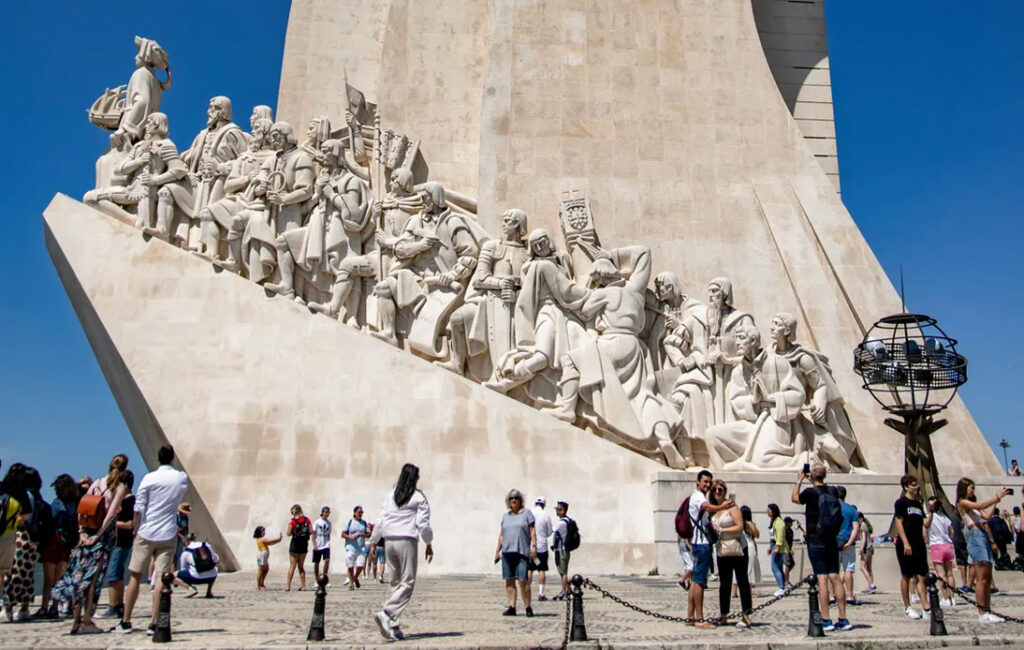
The US has vetoed a UN resolution calling for an immediate ceasefire in Gaza, after offering its own proposal for a temporary ceasefire.
The US argued that the resolution put forward by Algeria could disrupt ongoing negotiations to conclude the conflict.
Criticism followed the US’s decision to block the original ceasefire proposal, with disappointment voiced by American allies over the obstruction. The American draft resolution cautioned Israel against a ground invasion of Rafah.
Unlike previous stances at the UN, the US, under President Joe Biden, has begun to openly support ceasefire efforts. Out of the 15 nations in the council, 13 supported the resolution from Algeria, with the UK choosing not to vote.
Linda Thomas-Greenfield, Washington’s ambassador to the UN, stated that calling for an immediate ceasefire was not the right time given the ongoing negotiations between Hamas and Israel.
The US’s proposed resolution advocates for a ceasefire to be implemented as soon as feasible, contingent upon the release of all hostages and calls for the removal of barriers to aid deliveries to Gaza.
Yet, it remains uncertain when or if the Security Council will vote on the form of words proposed by Washington.
Following the US’s rejection of Algeria’s proposal for a ceasefire, Algeria’s UN representative remarked that it would have significantly supported the Palestinian cause and noted the Security Council’s failure once more.
“Examine your conscience; how will history judge you?” Amar Bendjama said.
Riyad Mansour, the Palestinian envoy to the UN, criticized the US’s decision as dangerously irresponsible.
Criticism also emerged from allies of both Israel and the US, with France’s representative, Nicolas de Rivière, expressing regret over the failure to pass the resolution amid the disastrous situation.
However, Israeli Prime Minister Benjamin Netanyahu affirmed he was “committed to continuing the war until we achieve all its goals.” “There is no pressure, none, that can change this,” he added.
The US faced widespread global calls to apply its influence to moderate the severe impact of Israel’s military actions, consistently highlighting its ally’s claim to self-defense.
Security Council resolutions, being obligatory, would require Israel’s compliance, marking a distinction from the General Assembly’s recommendations.
This occasion marks the first instance of the US advocating for a temporary halt in hostilities in Gaza at the UN, diverging from its history of vetoing resolutions that included the term “ceasefire.”
Frank Lowenstein, who served as US special envoy for Middle East peace under President Obama, called the move “a pretty significant shift” in American policy.
President Biden faces pressure from Arab-American communities to intensify efforts to stop the killing of Palestinians.
Over a million displaced Palestinians in Rafah, making up half of Gaza’s population, face dire conditions, with limited access to essentials.
The UN has warned that an Israeli offensive in Rafah could result in significant civilian casualties, describing the assault on Gaza as unprecedented in severity.
Despite Israeli claims of targeting only Hamas combatants, civilian casualties, including women and children, continue.
Israeli official Benny Gantz stated that a military operation would proceed unless Hamas releases all hostages before the beginning of Ramadan.




















